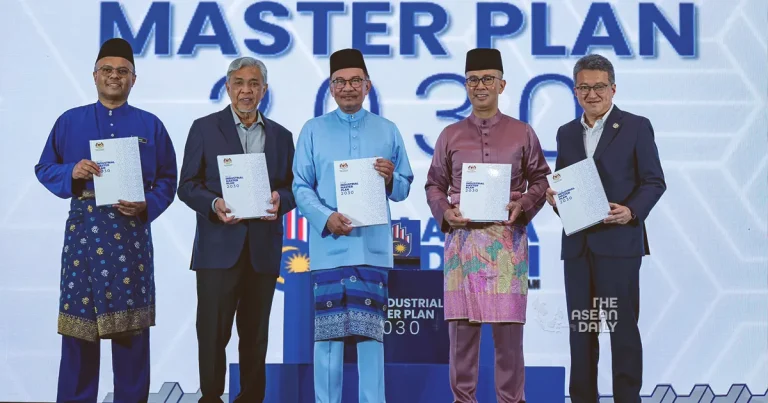2-9-2023 (KUALA LUMPUR) Prime Minister Datuk Seri Anwar Ibrahim has revealed that the recently launched New Industrial Master Plan (NIMP) 2030 places a strong emphasis on creating high-value job opportunities. This move is part of Putrajaya’s strategy to expand the middle class in Malaysia.
Anwar pointed out that various global trends, such as the increasing influence of IR4.0 technology, climate change considerations, demographic shifts, and the globalization of value chains, have brought about significant changes in the nature of employment. He emphasized the crucial role of skills transformation in developing future competencies, making it a central focus of the country’s industrial strategy.
The NIMP 2030 introduces a progressive wage system aimed at promoting skill development and career advancement. It also emphasizes enhancing public-private collaborations in Technical and Vocational Education Training (TVET) and Science, Technology, Engineering, and Mathematics (STEM) programs to ensure that the industry’s skill requirements are met.
Anwar stressed that both the government’s Economy Madani framework and the NIMP 2030 share a common focus on improving the lives of the people by achieving higher returns from national economic targets. This includes creating meaningful employment with competitive wages and fostering wealth-sharing to build a more equitable and prosperous society.
According to Anwar, employment is projected to grow by 2.3% from 2023, providing job opportunities for 3.3 million people by 2030. The anticipated growth in employment is driven by the creation of high-skilled jobs as Malaysia advances toward higher value-added activities, leveraging automation and technological advancements.
Crucially, the NIMP 2030 envisions a significant increase in the median salary for the manufacturing sector, reaching RM4,510 from RM1,976 in 2021. This 128% increase is expected to result from the industry’s shift towards higher value-added activities and the creation of high-skilled job opportunities.
Additionally, the NIMP 2030 aims to create more growth opportunities for local small and medium enterprises (SMEs) through specific action plans. Currently, SMEs in manufacturing contribute only 8% to Malaysia’s GDP and 9% to exports. Anwar highlighted the potential for SME growth in the manufacturing sector, aligning with the Economy Madani aspiration to strengthen firms of all sizes.
The plan includes initiatives to enhance SME capacities, positioning them higher in the global value chain. Anwar anticipates that these efforts will enable SMEs to evolve into mid-tier companies, contributing significantly to Malaysia’s foreign exchange earnings.
Anwar also noted that the International Trade and Industry Ministry is set to launch a new framework in the coming weeks to bolster SMEs’ capacity in environmental sustainable goals (ESG). This step is vital to ensure SMEs’ continued participation in ESG-compliant multinational vendor ecosystems and to maintain access to ESG-sensitive export markets.
The NIMP 2030 represents Putrajaya’s vision to transform Malaysia into a high-tech, industrialized nation, focusing on economic growth, job creation, and skills development.




